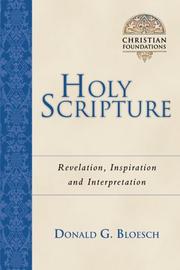









 Recent comments at this blog under my blog entry “climate scientists caught lying” have prompted me to clarify my policy on libel posted at my blog. Here’s the unfortunate context that caused this to issue to arise:
Recent comments at this blog under my blog entry “climate scientists caught lying” have prompted me to clarify my policy on libel posted at my blog. Here’s the unfortunate context that caused this to issue to arise:
As you’ll probably know, the computer system of the University of East Anglia’s Hadley Climatic Research Centre was hacked, and emails were obtained. Those emails (even in the view of firm believers in man made global warming) that scientists at that centre had been dishonest, hiding and even manipulating data to enhance the believability of their claims about global warming. I called this “lying” because that’s what it is.
Reacting to this, some here in New Zealand who passionately believe in man made global warming have tried to play the old tu quoque card of accusing sceptics of man made global warming of being just as disreputable.
The New Zealand Climate Science Coalition (NZCSC) noted that data had been adjusted at some temperature measuring stations in New Zealand, and adjustment which, they say, made the temperature look cooler than they would otherwise look. They approached NIWA multiple times and sought an explanation of these adjustments, but no reply was received. This obviously looks bad because it gives the appearance that data was being manipulated for no reason. They therefore put out a press release, noting that data had been adjusted without an explanation given for that adjustment.
NIWA replied in a press release, explaining that there was a reason, namely that temperature recording stations had been moved to different locations, so an adjustment had been required. A tiny scale feeding frenzy then erupted, with some bloggers claiming that NZCSC had been dishonest. Here’s where my blog gets involved. A visor to this blog (and there is no need to name him, he tells me that he has left the blog for good) actually claimed that NZCSC now actually “admitted” that they had “glossed over” the facts that NIWA pointed out. This claim, if true, speaks ill of the NZCSC, and it lowers their standing in the eyes of a reasonable person, because it amounts to the claim that they knowingly made false statements in public and therefore are unreliable, and that they passed over important information in making criticisms of NIWA. As it turns out, this claim is also libellous. It is a false accusation against NZCSC. Here is what the NZCSC actually said for itself in a press release:
The Coalition says [NIWA spokesperson] Dr Wratt’s release mentioned specifically that NIWA climate scientists had previously explained to members of the Coalition why such corrections are made. Mr Dunleavy comments: “We disagree. We have no record of receiving an explanation. NIWA has in fact refused numerous requests over the years to disclose the corrections. The most recent one was a written request to Dr James Renwick – over a month ago – still unanswered.”
I have pointed this out immediately in reply to the libellous comment so that comment will stay for now because I have made the accusation impossible for a reasonable person to believe. However, I will have no hesitation in removing it if asked to do so.
Although my blog policy already forbade libel, this was evidently unclear to some, so I have expanded it to be even clearer:
Lastly, and this is a biggie – no libel. Please do not make accusations against people (whether individual or corporate) that speak ill of them or lower their standing in the eyes of a reasonable person unless a) it can be substantiated as true, b) it can be shown to be reasonably held based on the available evidence, or c) it can plausibly be expressed as a reasonable opinion. For example, “I don’t like him, and I just don’t trust him, he seems shifty” might be a reasonably held opinion even with no specific evidence of wrongdoing, but “He is a liar and he admitted to lying” is not. The latter is the kind of thing that must be substantiated under either a) or b). My policy on libel is not just a matter of good manners (although it certainly is that), it is a matter of law. If a potentially libellous comment is made, I will seek substantiation from the comment author, and if full substantiation is not provided, the comment will be removed. While such comments remain at my blog, they make me liable for their existence. Publishers of libel (that’s me, if you post libel at my blog) are no less vulnerable to legal action than authors of libel (that’s you, if you post libel at my blog).
I don’t like getting all heavy about rules, and the reality is, people of good will are unlikely to fall afoul of this policy. So for pretty much everyone who visits this blog, just continue as you are. For those who are tempted, whose feelings might get the better of them, who might think that because it’s the internet you can say whatever you like, just breathe slowly, count to ten, and hit the backspace key.
There, was that so hard?
(You’ll notice that comments are not available on this blog post. That’s because it’s an announcement, not a discussion piece.)


 David Burge is friend of mine in Auckland. I first met him in person in 1999 when Ruth and I moved up there as I began my studies in divinity at the Bible College of New Zealand (now Laidlaw College). I met him through the
David Burge is friend of mine in Auckland. I first met him in person in 1999 when Ruth and I moved up there as I began my studies in divinity at the Bible College of New Zealand (now Laidlaw College). I met him through the 
 The world has gone insane.
The world has gone insane.  Recent comments at this blog under my blog entry “climate scientists caught lying” have prompted me to clarify my policy on libel posted at my blog. Here’s the unfortunate context that caused this to issue to arise:
Recent comments at this blog under my blog entry “climate scientists caught lying” have prompted me to clarify my policy on libel posted at my blog. Here’s the unfortunate context that caused this to issue to arise: This is a reminder that I haven’t forgotten about the podcast. I was momentarily distracted by the hubbub over the “climategate” scandal, but I’m working on getting the next podcast installment in the series “in search of the soul” completed, and at this rate it should be recorded within a few days. Sit tight!
This is a reminder that I haven’t forgotten about the podcast. I was momentarily distracted by the hubbub over the “climategate” scandal, but I’m working on getting the next podcast installment in the series “in search of the soul” completed, and at this rate it should be recorded within a few days. Sit tight!
 I’m just about finished reading through Nicholas Wolterstorff’s Justice: Rights and Wrongs. I know it has been a while since I started, but the only time when I’ve been reading it is over a cup of coffee on my lunch breaks at work. I’ll have some comments to offer on that when I’m done. Expect to see that beginning some time in the next few weeks.
I’m just about finished reading through Nicholas Wolterstorff’s Justice: Rights and Wrongs. I know it has been a while since I started, but the only time when I’ve been reading it is over a cup of coffee on my lunch breaks at work. I’ll have some comments to offer on that when I’m done. Expect to see that beginning some time in the next few weeks. Let me first say that the title of this blog entry is obviously false in any literal sense. A Christian can be a libertarian. A Christian can also be a fascist, a communist, a drug dealer, a liar, a democrat, a republican, a shoddy tradesman, an idiot, and any number of things. That’s not really the point here. When I use the word “cannot” in the title, I mean it in the sense in which you might use it when you say “Oh come on, you cannot be serious!” Of course, they might be serious, but what you really mean is “I hope you’re not serious!” or “you should not be serious!” Likewise, a Christian is capable of being a libertarian, but she should not be a libertarian. Libertarianism and Christianity are incompatible. A libertarian, by becoming a Christian, compromises and gives up part of her libertarianism. A Christian, by becoming a libertarian, compromises and gives up part of her Christianity.
Let me first say that the title of this blog entry is obviously false in any literal sense. A Christian can be a libertarian. A Christian can also be a fascist, a communist, a drug dealer, a liar, a democrat, a republican, a shoddy tradesman, an idiot, and any number of things. That’s not really the point here. When I use the word “cannot” in the title, I mean it in the sense in which you might use it when you say “Oh come on, you cannot be serious!” Of course, they might be serious, but what you really mean is “I hope you’re not serious!” or “you should not be serious!” Likewise, a Christian is capable of being a libertarian, but she should not be a libertarian. Libertarianism and Christianity are incompatible. A libertarian, by becoming a Christian, compromises and gives up part of her libertarianism. A Christian, by becoming a libertarian, compromises and gives up part of her Christianity.